what sids 4 means
FOR THE CARIBBEAN, ISLANDS AND THE WORLD

FOR THE CARIBBEAN, ISLANDS AND THE WORLD
THE (ABAS)
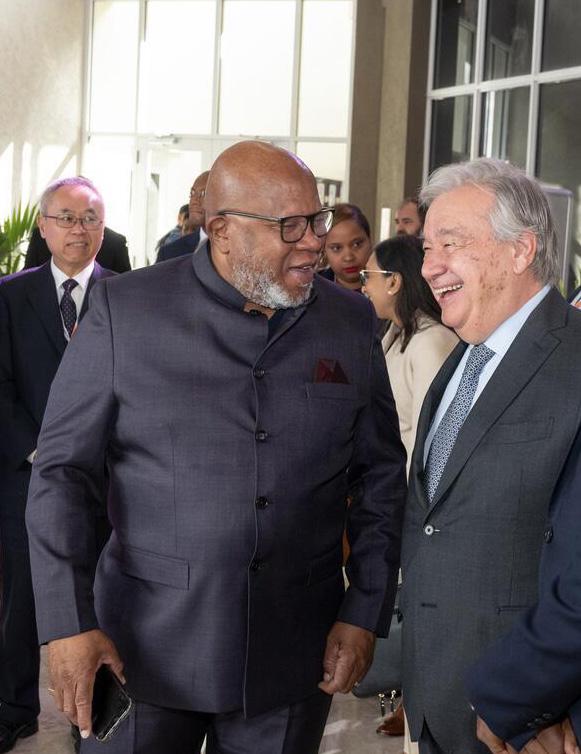
sids insists...
GREEN FOR GREENBACKS CAN WORK

Issued on a monthly basis, The Hummingbird offers insights into the latest projects, publications, technical assistance missions and research carried out by ECLAC Caribbean. In addition to these, sneak previews are provided of the most salient upcoming events, alongside enriching followups to previously covered issues. With a view to featuring a variety of facets of Caribbean life and lifestyle, The Hummingbird also zooms in on cultural activities and landmark occurrences through an eye-opening regional round-up.
Editor / Writer: Jabari Fraser
Proof Reader: Veera Deokiesingh-Fraser Design and Layout: Liseanne Martin-Subero
Please see our contact details on the back cover of this magazine.
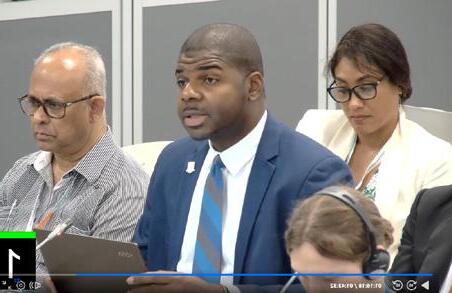
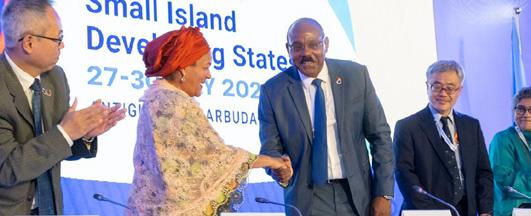
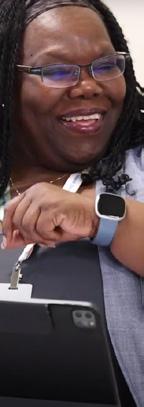
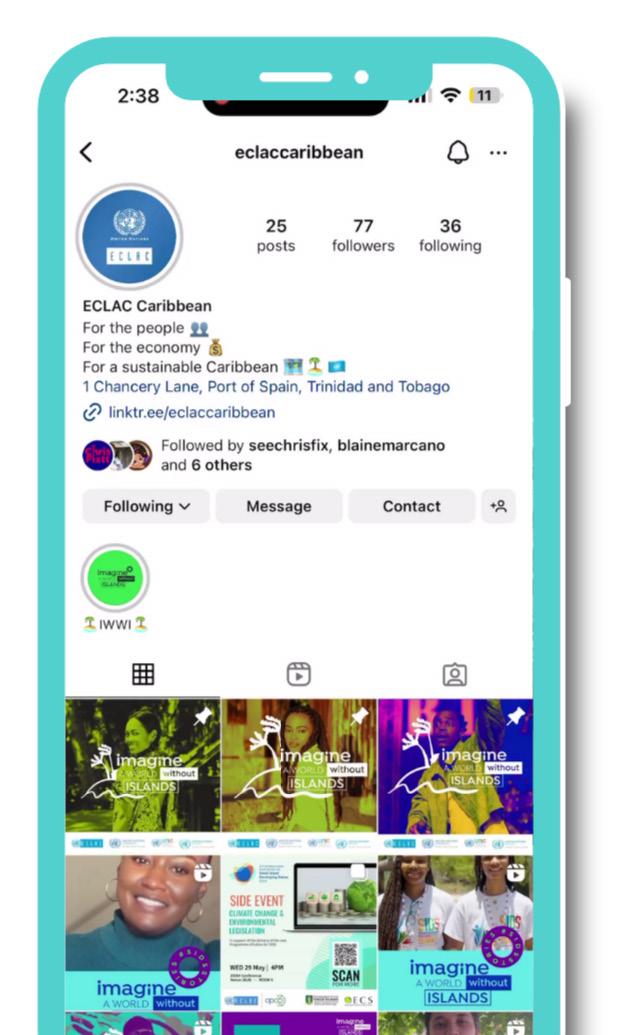
From the Desk of the Director
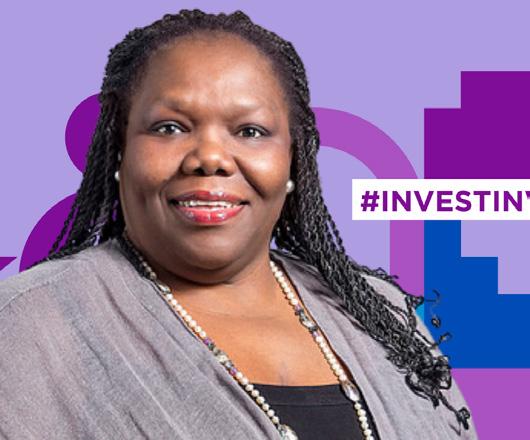
It may sound like sacrilege to climate scientists, or diehard COP believers, or even in the United Nations system… but the essential message of International Conference on Small Island Developing States is arguably now more important; more crucial to world survival than the Conference of the Parties on Climate Change. Small island Developing States set the tone and the bar for the world’s climate ambition, they are most realistic about the limits of what every living thing can tolerate when it comes to withstanding extreme temperatures. And they say that the carrying capacity of the world’s ecosystems are already in breach. How the rest of the world treats and cooperates with SIDS is also a true measure of global inclination towards multilateralism and shared solutions for sustainable existence.
It may not seem this way because there is far more global media attention on the COPs. International media, for the large part, ignored SIDS4, even Caribbean media did not cover the Conference in the way it deserved, or even in the way that “think pieces” emerge from the COPs. We hear a lot about the latest climate protest actions from Gretta Thunberg in our media. But, if you think about it, I am sure you did not hear or cannot recall the names of any island youth activist who made their opinion and concerns evident at SIDS4.
There is a lot of duality that comes along with being from a small island. Small Island nations are at once the first and worst symptom-bearers of the climate crisis. The canaries in the coalmine, we say. And we are similarly the most helpless and most resourceful in efforts at adaptation and mitigation. We lack the resources for robust infrastructure, and yet, we are the ones that can lead resilience thinking, science and practice.
Conference on Small Island Developing States took place on the island that boasts one beach for each of the 365 days in the year. There could not have been a more perfect venue, even though there was no beach time. The government and people of Antigua and Barbuda put on a splendid show; they hosted their visitors from across the world with consummate island hospitality. Let’s analyze some of the outcomes of Fourth International Conference on Small Island Developing States. Since the Barbados Programme of Action in 1994, each new declaration of a vision for SIDS has gained in clarity and specificity, even as the cooperation gap has become wider and weaker. Small island nations need a robust solidarity from the rest of the world; and more urgent input is needed if we are to achieve what was agreed upon. If we take history as our guide, then the global north’s commitments made at the Conference would likely be taken by most SIDS with little more than a few grains of island sea salt. This is not a pessimistic view on the outcomes; it is rather a reality check. The three main initiatives that emerged were:
1. ABAS – The Antigua and Barbuda Agenda for SIDS – A declaration and framework for action adopted by participating countries that is focused on addressing the range of challenges that SIDS face. It includes strategies for climate change and environmental protection, financial and technical assistance, measures for health and education, interregional SIDS cooperation, among other main areas. ABAS also challenges the United Nations system to be more effective in its support for SIDS and in its regular assessment of progress.
3. The SIDS Debt Sustainability Support Service, which will have four main approaches: a. A multi-layered approach to tackling existing debt which will free up fiscal space for social and economic investment and climate resilience. This could relieve debt burdens by up to 40%, in turn boosting growth. b. Economic shock and threat protection, especially from extreme weather events, combining insurance with other funding mechanisms. c. Encouraging a climate-resilient infrastructural investment through bonds. d. Expert advisory and legal support for SIDS to navigate international debt and finance negotiations.
One of the key approaches in the debt support service is that SIDS will retain leadership and ownership of the initiatives that will influence their future. It is hoped that there will be dynamic and adaptable governance structures that can effectively respond to SIDS challenges.
The Centre of Excellence for SIDS is another potentially great headline initiative. It features a SIDS Global Data Hub, intended to redress the perennial challenge that Caribbean faces as data poor. It will help SIDS improve national data centres for improved decision-making, build capacity, monitor implementation and progress and encourage public, private and international development finance. We embrace these as exciting times for SIDS’ future; a potential point rich with possibility on which we U-turn the bleak existential outlook.
While the ABAS has become a clearer document than that produced at other SIDS conferences as challenges have become increasingly stark, it may not be viewed by many as being as strong as some of the previous SIDS outcome documents. However, the strength of ABAS lies in the faith invested in partnership, and in the tangible monuments to expressed support embodied in the Centre of Excellence and the Debt Sustainability Support Service. Of
course, the proof of the pudding is always in the tasting; certainly we at ECLAC stand ready to give every support towards ensuring that these initiatives emerge fully baked and very well done. These multilateral conferences come with long lists of side events that take place in support of the main discussions. If the truth is to be told, much of the real wealth of discussion and groundbreaking ideas emerged from the 100+ side events at SIDS4. They must share the success of the Conference; they give hope though the strength of participation and interest expressed at this level.
1. The USA announced a commitment to scale-up international public climate finance to over 11 billion annually by the end of this year. Four times the previous amount.
2. The European Union pledged to mobilize 300 billion Euro in public and private investments into sustainable development in SIDS by 2027.
3. The Netherlands, Japan, Qatar, Australia, Germany, France, Portugal and other industrialized countries pledged to increase their funding of sustainable development projects in SIDS or contribute to development financing.
It is important to highlight these commitments because they are the fuel that will make ABAS either a reality or another dream drowning in rising waters. Consider a few historical facts. For years, SIDS have clamoured for recognition and special consideration for sustainable development. This appeal was given short shrift for many years; undermined by middle income status. Then, SIDS have been deservedly advocating for Loss and Damage provisions since 1991; yet the agreement for loss and damage fund was only reached at COP27 in
2022; 31 years later! SIDS cannot afford the wait another thirty years to get climate action escalated for survival. They cannot wait for decades for developed countries to come good on their promises for climate financing and just transition. And unfortunately for emerging economies, their development as industrialized powers cannot create a new fossil fuelled industrial revolution, as the Annex I countries did before them. How, then, does the world get to net zero emissions, while emerging economy countries explore their right to robust development with their natural resources. We fear that SIDS will face the brunt of that oh-so-difficult reconciliation.
More and more, the Caribbean and global SIDS need to sing in chorus. Disparate and or occasional voices and efforts do not work. And this clarion call needs must be made at the very highest levels of government. The voices of technical negotiators no longer carry far enough to make SIDS voices sufficiently influential at such gatherings. The same must apply to COP29. SIDS will need to work the power of their solidarity while negotiating with the Global North. The mechanisms already exist. CARICOM, the Pacific Islands Forum and other SIDS blocs must empower AOSIS to wrangle the action that they need. Twenty-eight successive COPs have passed, and yet the SIDS are no closer to climate safety; instead, they are sliding ever closer to the point of catastrophe.
There is always a lot of buzz and optimism after these conferences. Everyone feels energized by the long lists of commitments and agreements. That cloud nine effect is inspiring and intoxicating. Our small island nations must now wave the list of commitments in the air like they do flags in Caribbean parties and demand that the headline performers come good.
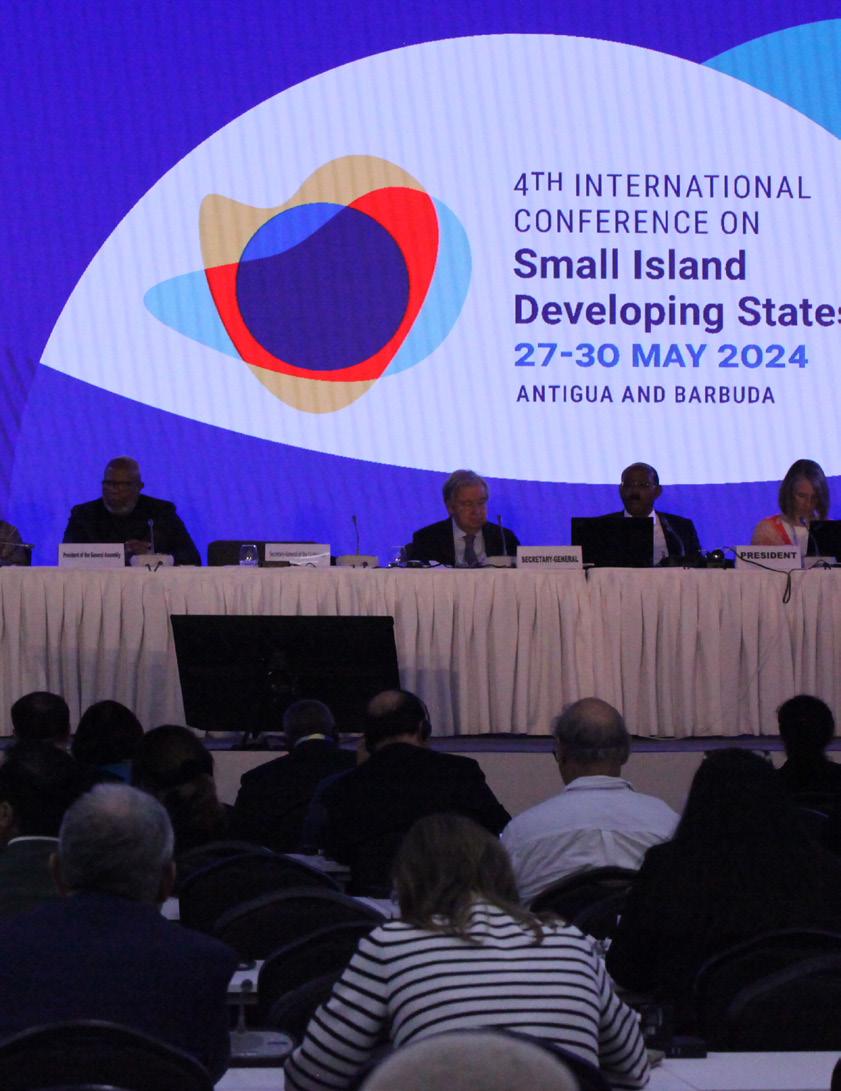
A RENEWED DECLARATION FOR RESILIENT PROSPERITY

These are some of the main recognitions and agreements in the ABAS
Coming out of SIDS4, ABAS is the main political action plan unanimously agreed upon by the leaders and governments gathered. Like the agreements that emerged from the previous international conferences on SIDS, it is wide ranging and very ambitious. It sets out the sustainable development needs of SIDS and the support required from the international community to achieve them.
continued from page 7
The ABAS agrees that SIDS need assistance to build resilient economies through improved connectivity and better ecosystems. It notes that SIDS need to foster safe, healthy and prosperous societies through promoting safe communities, inclusive institutions and healthier societies. ABAS recognizes that small islands need urgent support to enhance sustainable energy transition and access to affordable and reliable energy; to develop integrated water resources management; enhanced food security; and improved resilient
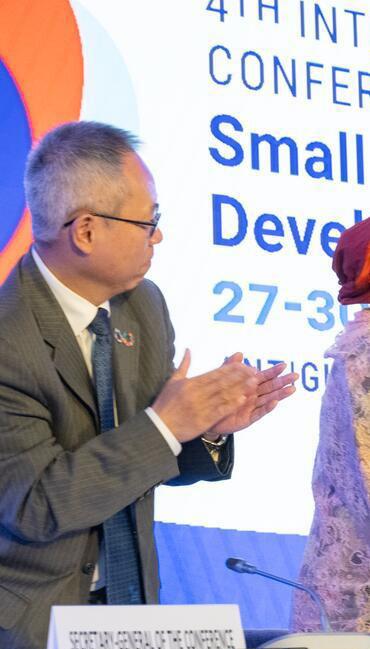
infrastructure.
ABAS acknowledges that SIDS are gravely endangered by anthropogenic climate change and need the global community to accelerate implementation of the climate measures in the Paris Agreement. The ABAS also agrees that there must be increased and improved conservation of the ocean and biodiversity. Islands stressed the importance of the Multidimensional Vulnerability Index, which measures a country’s vulnerability to create a comprehensive and holistic snapshot of its development. The
ABAS encourages international financial institutions to integrate it into their practices and policies.
Importantly, the ABAS agrees to reform of the international financial architecture, addressing gaps and shortfalls to facilitate easier access to affordable concessional finance for SIDS, through the recognition of the multiple risks and vulnerabilities that islands face.
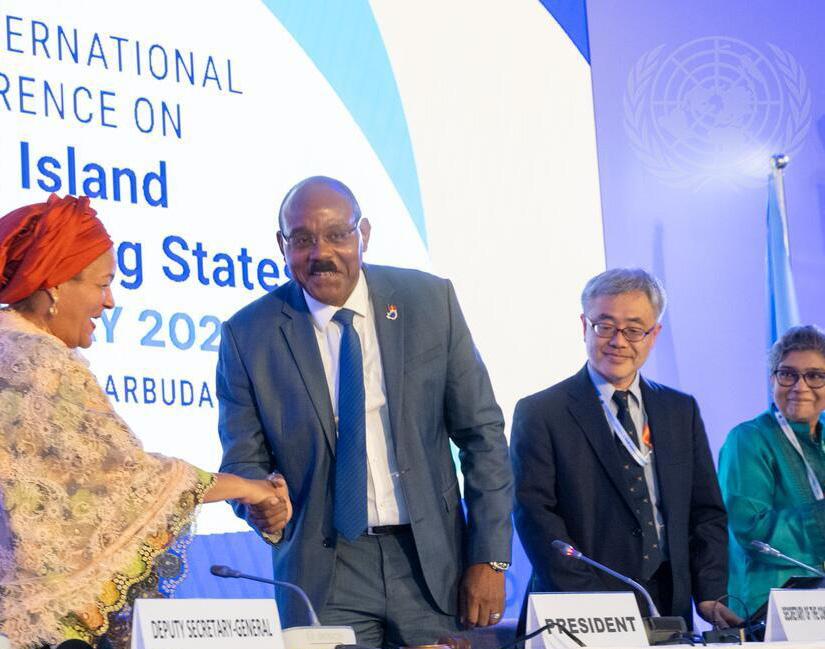
- Antigua and Barbuda launched Center of Excellence for SIDS and Debt Sustainability Support Service
- USA announces commitment to quadruple international climate finance to over US $11 billion annually by 2024
- The European Union pledges to mobilize EUR 300 billion in public and private sustainable development investments by 2027
- Malta, Organization of African, Caribbean and Pacific States and the University of Malta’s Islands and Small States Institute developing a Climate Vulnerability and Resilience Index to work alongside the Multidimensional Vulnerability Index. read more



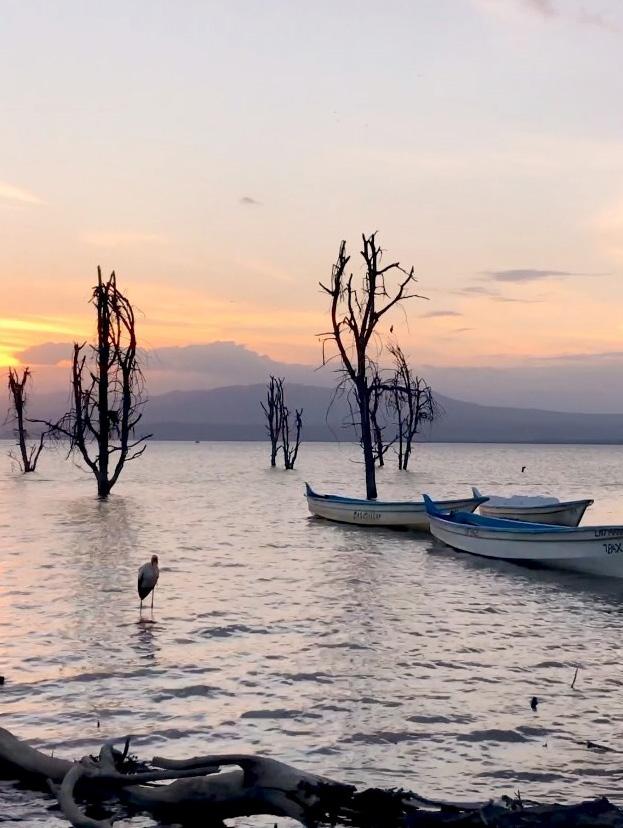
Small Island Developing States can fund climate mitigation and sustainable development through debt swaps with industrialized countries. This was the example provided by Belize’s Minister of Sustainable Development, Climate Change and Disaster Risk Management Orlando Habet at the Interactive Dialogue II on enhancing critical forms of financing and aid effectiveness through collaborative partnerships, as he shared Belize’s experience generating $550 million for sustainable development and debt servicing.
The interactive dialogue featured discussion between developed and developing countries, the input of experts, resource people and contributions from UN Member States, entities and other stakeholders. Minister Habet explained that in 2021, Belize swapped $550 million of its clean green and blue footprints for sovereign bonds with the
US International Development Finance Corporation.
Minister Habet said it “created savings to fund long term protection of over 30% of Belize’s ocean footprint. What it also afforded was for us to have a conservation trust that goes by four million dollars per year, to up to 80 million dollars in the next 20 years. In addition to that, taking down our sovereign debt, afforded the debt to GDP ratio to fall by 10% immediately. Our experience should not be an exception, the nature bonds could be a potential for other SIDS that are facing debt overhang, and increasing financing needs for sustainable development and the climate goals. One immediate thing that happened there is that it improved our credit ratings. So that was significant for us because now we are looked upon differently by international financial institutions, especially those for which we had these large debts.”
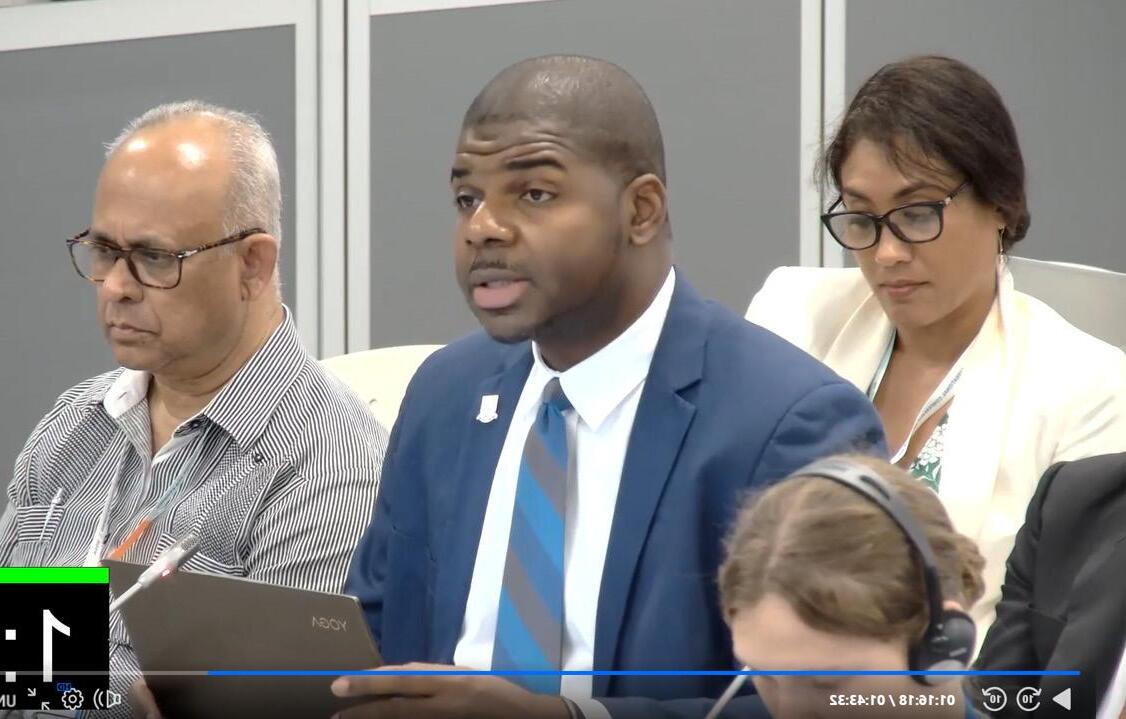
Minister Habet also noted that while extreme weather events are the obvious signs of the impact of climate change, SIDS have to deal with the less dramatic impact of slow onset changes to their countries. Changing coastlines, habitats, impact on mental well-being, traditional roles, and protection of the vulnerable in society. There was consensus that the international community must scale-up innovative and traditional financing and quality aid, complemented by domestic financing to advance sustainable development in SIDS.
The Interactive Dialogue also featured interventions from countries, UN entities and nongovernmental organizations. There was agreement that SIDS must mainstream climate change adaptation and disaster risk reduction in development planning; but that it must be accompanied by partnerships viable development financing options.
Director of development cooperation at the Organization for Economic Cooperation and Development (OECD) María del Pilar Garrido Gonzalo noted that the debt for climate swaps have been good and effective, pointing out the cases of Barbados, Cabo Verde, Seychelles and Belize. She also noted that there are other climate and development financing instruments that SIDS can use, which would require further conversation with multilateral development banks.
“The other issue that I wanted to mention is thinking about the wealth of the ocean. That takes you to the marine ecosystem and how to valorize financially some of that wealth and what does it take, thinking about a sort of a global public good bond and what does it mean, because the resilience of SIDS is the resilience of us all.” She also commented on the Multidimensional Vulnerability Index (MVI) its use, and how it can be most effective.
“What we have observed is that data wise, there is still a lot of work that needs to be done. So, it is also a message of continuing to mature the tool and develop more information so that we can make the most out of it and the most informed decisions to make the desired actions climate wise or sustainable development more broadly.”
to Triple Development Financing… SIDS to Benefit
Vice President of the European Investment Bank, Ambroise Fayolle made bold commitment that the bank is seeking to transform itself and increase development financing, especially for SIDS.
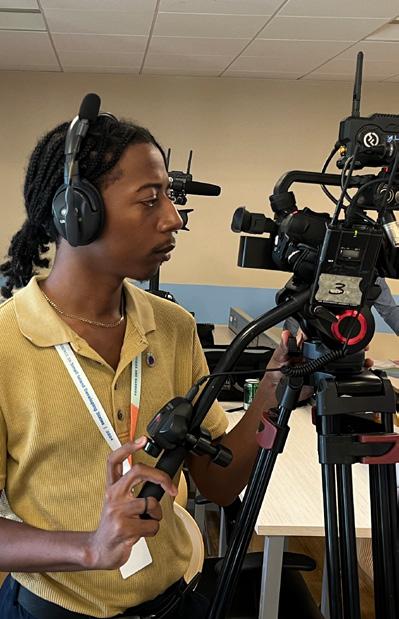
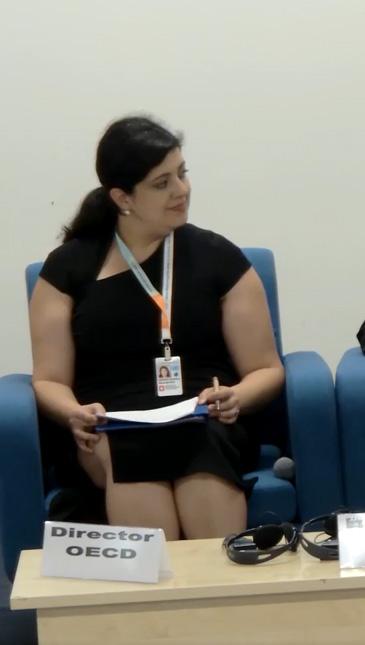
“We have increased the financing of projects in SIDS over the last ten years, we certainly intend to continue on this path… multilateral development banks can help and will help financing more projects for SIDS. What you see is a commitment of all these banks, starting with the World Bank, but all the different multilateral development banks to work more together to commit to the additional 324 billion additional financing or lending for climate in helping the countries to reach the climate target… We at
EIB, want to triple our financing to adaptation by 2025. SIDS are obvious candidates to receive more financing.”
Associate Member islands falling through the cracks.
In his contribution, Premier of the British Virgin Islands (BVI) Natalio Wheatley pleaded for special
recognition of his islands, which are politically, a British Overseas Territory. Among SIDS4 side events was a meeting of associate Members of ECLAC - nonindependent Caribbean islands. There are 18 non-independent Caribbean islands and territories in the Caribbean.
Premier Wheatley said the relationship with the United Nations is critical in recognition for overseas territories and to unlock the development assistance they need.
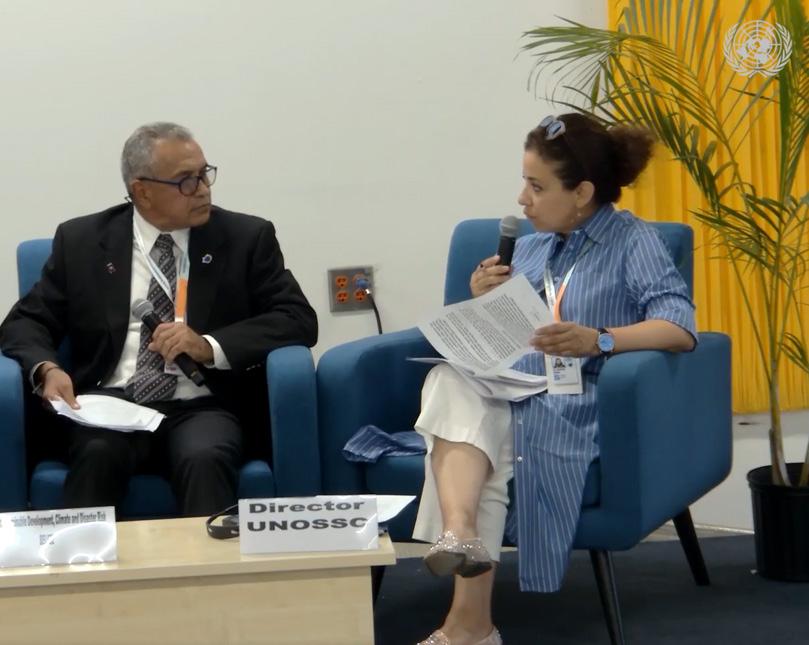
“As an associate Member of ECLAC, the BVI is a member of the SIDS family, however we find ourselves locked out of climate finance and development finance more generally. Our needs are great and we do not receive any form of external budget support. This is a serious problem because for many associate Members like us, a resource gap exists, but we do not have the needed resources to build up our climate resilience and sustainable development… Our political status and per capita income are cited as the reasons
for not being eligible for support, but our vulnerability has not been properly factored into decisions by donors and even our administering powers… We are just as vulnerable as other islands, just like other SIDS, we need concessional financing and grants to close these gasps as well as the technical assistance we lack in our small government administrations.”
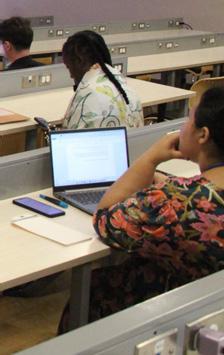
“Legislation is one of the most powerful tools that we have in our arsenal to combat climate change and socially engineer the future we envisage for ourselves.”
A reminder of the power that regional parliamentarians have, to make a difference on the national level, coming from Premier of the British Virgin Islands Natalio Wheatley at the launch of the Parliamentary Observatory on Climate Change and Just Transition (OPCC), an ECLAC side event at SIDS4.
The OPCC is a network of parliamentarians from Latin America and the Caribbean that cooperates to share best practices in environmental legislation, and build a regional agenda on climate ambition and just transition. Premier Wheatley was one of the headline speakers at the launch. He says for a long time, Caribbean countries such as the BVI have been siloed in their efforts to craft legislative solutions to effectively respond to their evolving and complex challenges, including in the areas of environment and climate change.
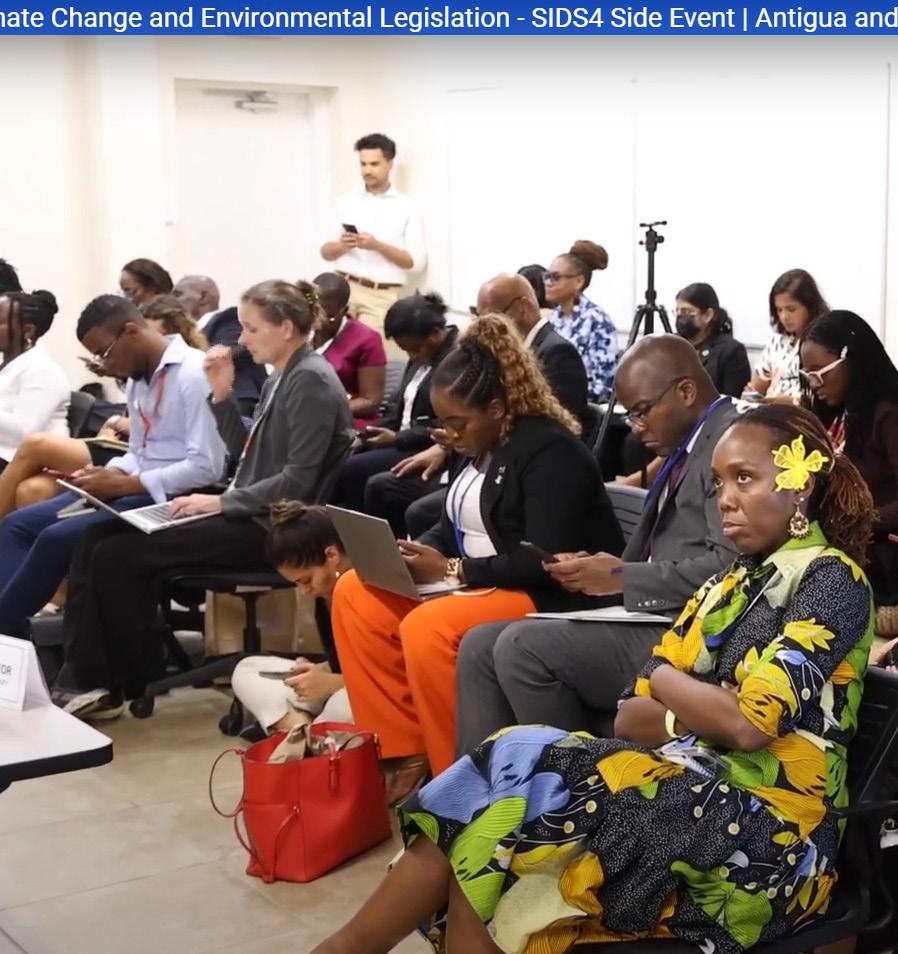
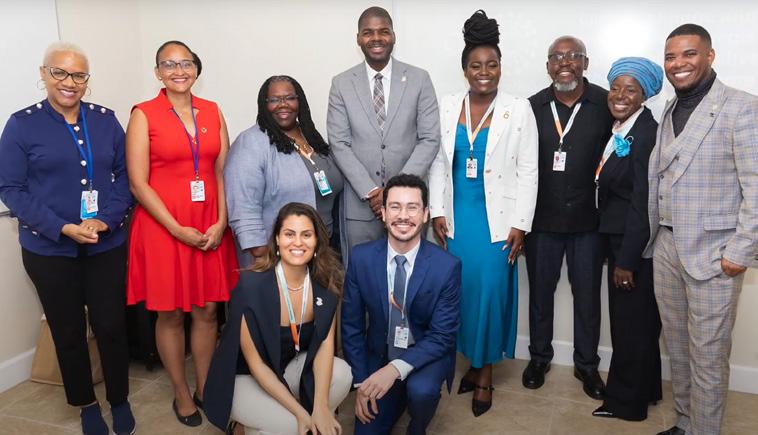
“The OPCC is doing great work to break down these silos and bridge the gap by allowing us to easily access, share and learn from each other’s legislative efforts. As an early and active member of the OPCC, the British Virgin Islands is both greatly benefitting from and contributing to this exchange and I trust that our experience will inspire other Caribbean parliamentarians to join and become active participants… in my current capacity of chair of the OECS ministers of environment, I extend a special invitation to OECS parliamentarians and government to participate in the OPCC, and ask the OECS commissions support in continuing to sensitize member states to the benefits.”
Premier Wheatley explained that the BVI is in the process of finalizing landmark, comprehensive environmental legislation. While the Premier stressed that access to climate and development financing is the most pressing issue that his multiple-island nation is facing, laws that deal with climate change and environment are also a top priority. The BVI is using the OPCC’s legislative tracker (an interactive database that lists all environmental legislation and bills in Latin America and the Caribbean) to compare and refine some of the core environmental management and enforcement mechanisms used by other countries in the region.
“While the legislative tracker is a great tool, the value of the OPCC is much more than this. For the British Virgin Islands, the OPCC has provided a valuable high-level forum including at the recent COP28 climate change
talks, through which we can raise awareness of some of the peculiar challenges that we face, including a lack of access to climate finance and more broadly, development finance.”
The Dominican Republic reports a similarly positive experience that the OPCC is having on their efforts to produce optimal climate and environmental laws. Contributing to the discussion virtually, Vice Minister for Climate Change and Sustainability Milagros De Camps said her country has been working on its legislation for about a year and a half. “This new legal framework is crucial for attracting and ensuring sustainable financing in the country. This is particularly significant in the context of the international financial system which has been very challenging especially for small island developing States and particularly for the Caribbean region which faces more challenges because of our vulnerability.”
Vice Minister De Camps says the legislative framework can help unlock investments in the environment and is creating a conducive environment to attract funding from various sources, including international organizations and climate funds, private investors, local funds and commercial banks. She said it provides clarity and confidence to investors by establishing clear guidelines.
“In the process of exchanges, it has significantly strengthened the proposal of the legal framework which we are proposing now to congress… It has been fostering
collaboration and mutual learning and it’s leveraging expertise and insight gained through interactions with the observatory. The Dominican Republic with this experience, has been able to enhance the comprehensiveness, effectiveness and relevance of its legal framework to address climate challenges. The exchange of information, ideas,
from the policy makers of the different countries in the Latin America and Caribbean region has enabled us to identify the different gaps, address concerns and incorporate innovative approaches into the framework.”
Making a presentation on the work of the OPCC, Member of the Curacao Parliament Gwendell Mercelina said he was grateful to
have been part and a co-founder of the OPCC. “As servants of the people… you’re a designer of the future, you have to talk about climate change. You have to talk about just transition. We’re not only talking about energy, climate change, just transition has to be equal
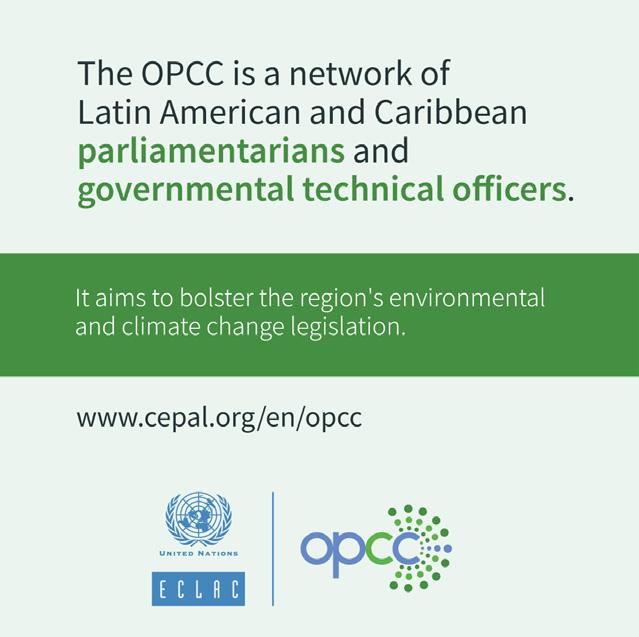
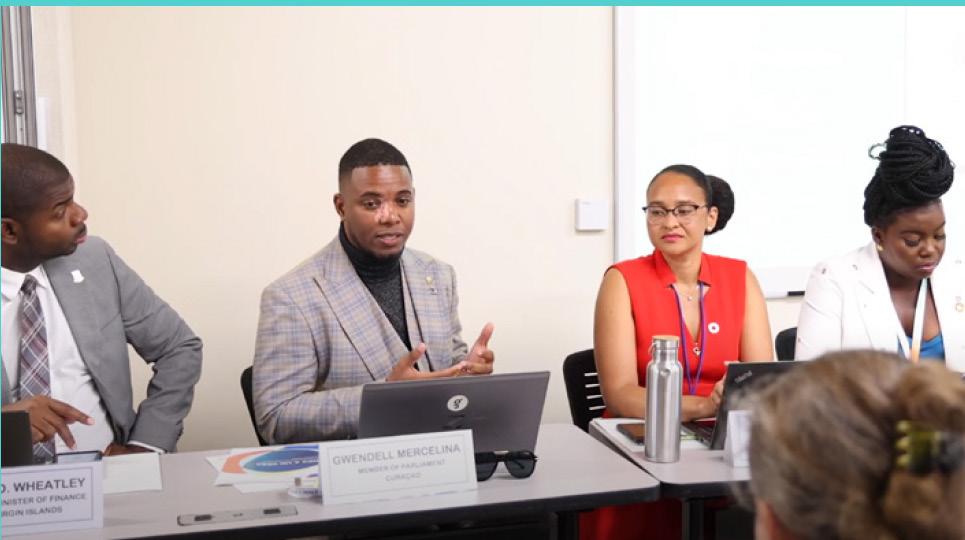
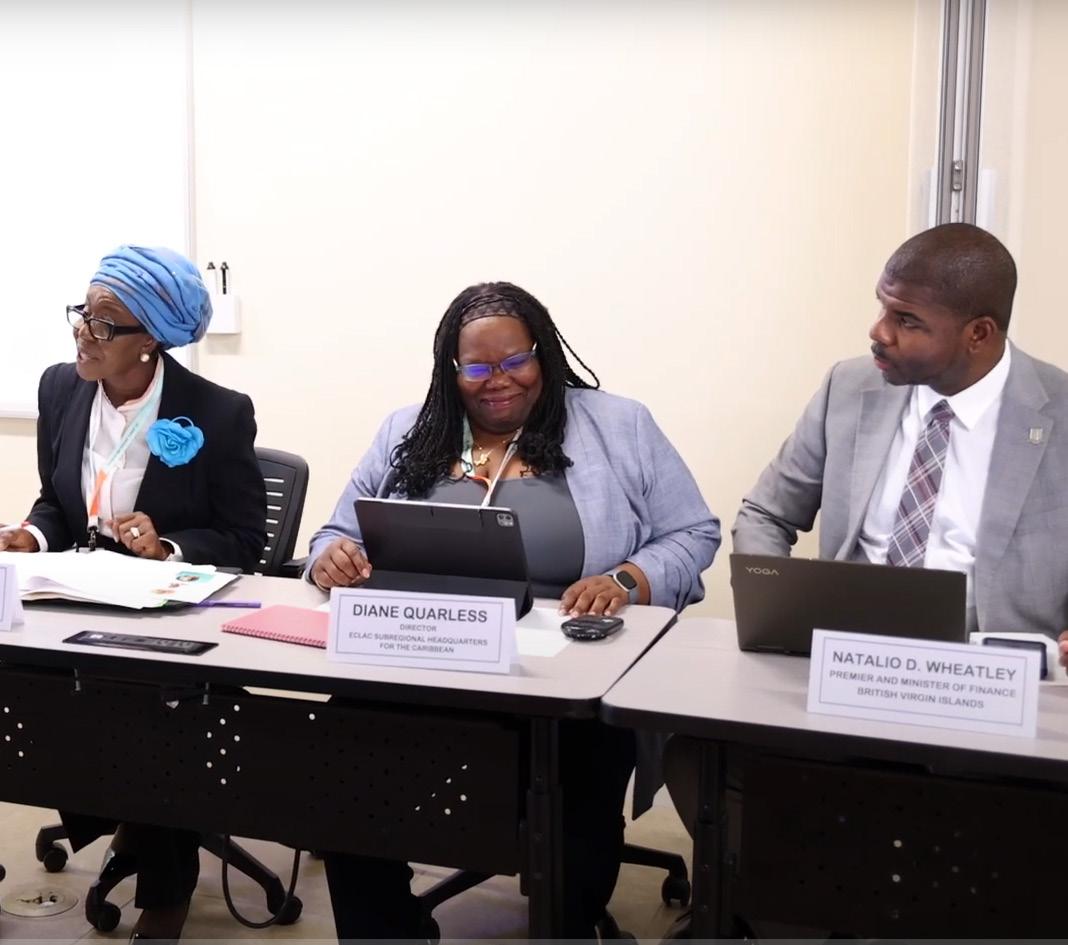
Speaking at the OPCC event, ECLAC Caribbean Director re-enacted Secretary General Antonio Guterres’ passionate and real appeal for SIDS.
“I was in a meeting yesterday with the secretary general. When he finished with his prepared statement, he grabbed his Secretary General card and said, ‘now I stop talking as Secretary General, this is me talking from the heart.’
This was the Secretary General! And then he started to push his punches, it was just awesome. I was absolutely exhilarated by the passion and by the defence of the secretary general of SIDS, they have in these kinds of discussions that we’ve had during the course of the week.”
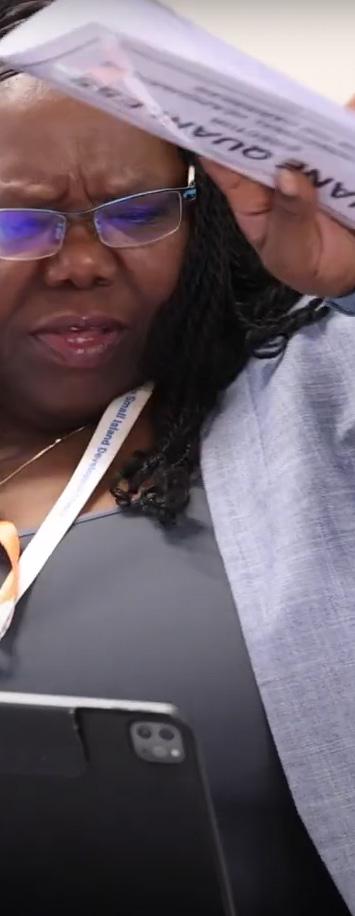
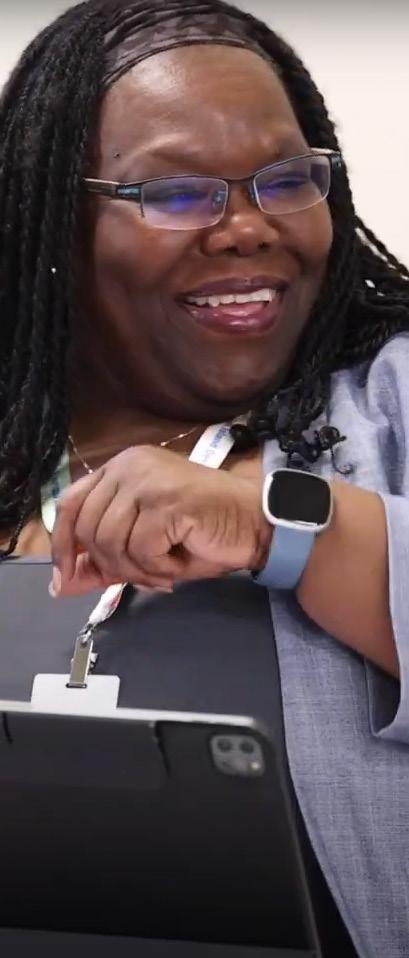
Director Quarless says the OPCC has grown in its membership. More countries are represented, and the significance and diversity of its portfolio of activities has grown. With a gentle nudge, she encouraged more CARICOM (Caribbean Community) parliamentarians to get on board and take advantage of the high-level coordination and dialogue opportunities that the OPCC provides.
“I’m truly pleased to see that the OPCC is a part of this significant gathering of SIDS and the global community. Since its missions and ideals are absolutely essential to the future survival of our islands and the well-being of our peoples. For this initiative seeks to promote and support national efforts to achieve net zero carbon emissions sustainably by 2050 by encouraging legislative and policy imperatives.”
All this talk about climate change and its effects brings to mind the perfect Caribbean inspired pepper sauce (or hot sauce) sure to heat up any dish! This sauce is especially perfect for those with a green thumb, or after a trip to your local market, why not try your hand at making your own pepper sauce at home with this quick and easy recipe that blends both the spicy and the sweet. Perfect for adding heat to any meal or even to your favorite cocktail.
What you will need:
• 3/4 small pineapple
• 10-15 assorted hot peppers
• 1/2 teaspoon salt
• 2 lemons (juice)
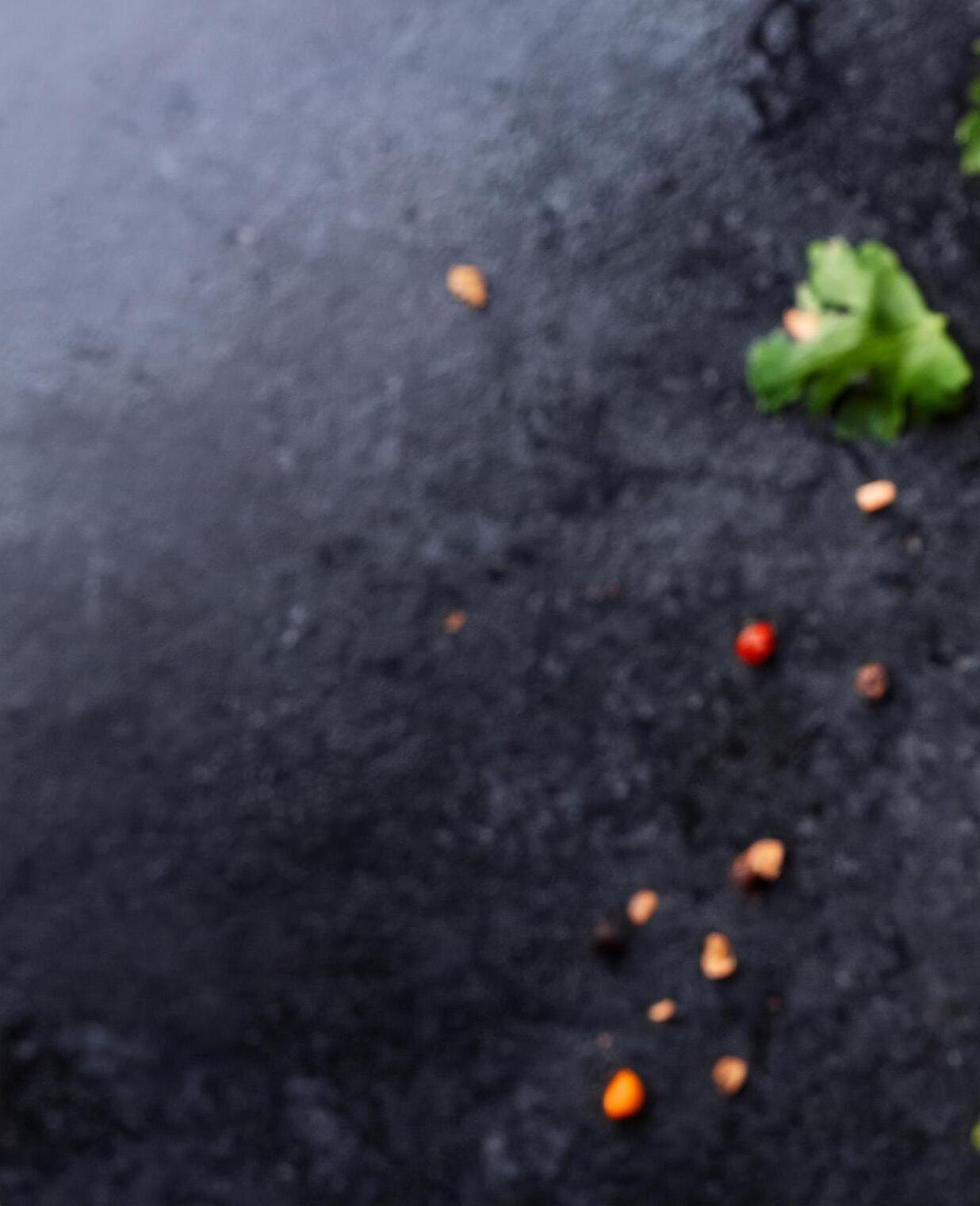
• 1 teaspoon grated horseradish
• 4 large cloves garlic
• 4-6 leaves chadon beni (cilantro)
Important: Wear gloves and wash your hands immediately after handling such hot peppers. If you cannot source chadon beni feel free to use cilantro (coriander) . To tame the heat you can remove and discard the seeds and white membrane surrounding the seeds of the peppers and discard.
Step 1: Prep the ingredients. Wash and remove the stems of the peppers (you can give them a rough-chop if you wish). Peel, core and cube the pineapple, then juice the lemons. And finally.. grate the horseradish.
Step 2: Place everything into the food processor or blender that you’re using to make the puree. Keep in mind that you can make this as smooth or as chunky as preferred. Feel free to give the chadon beni a rough chop too.
If you prefer a chunky consistency, the food processor would give you more control over the finished product. Pulse the food processor, stopping to scrape down the sides a couple times. Be sure to have the windows in your kitchen open as the scent of the peppers can be a bit overwhelming.
Step 3: Place in a clean container and store in the fridge. You will notice that after a week or so the heat will subside, the flavor of the pineapple will decrease and you may need to add a bit more salt. This is all natural. For a more pronounced pineapple flavor you can go in a with a pineapple juice reduction.
It's that simple! Recommended peppers for this sauce are Ghost, Habanero, Scotch Bonnet or Scorpion peppers but feel free to use peppers you can handle or have available in your region.




